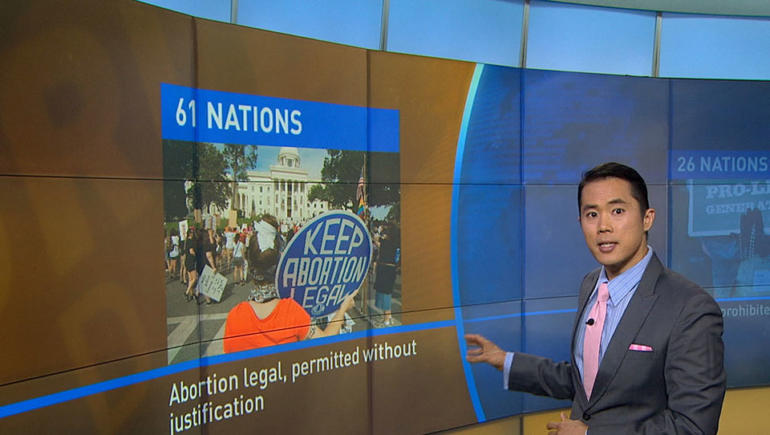The United States affirmed the right of women to choose abortion more than 46 years ago.
But the new wave of restrictions in some states is reigniting passions and political discourse on this hot-button issue. CGTN’s Gerald Tan takes a look.
In 1973, the U.S. Supreme Court made abortion a constitutional right in all 50 states. The landmark case was Roe vs. Wade. But many today worry that decision may soon be challenged.
Last week, Alabama passed the nation’s strictest anti-abortion law yet, a near-total ban on abortion at any stage of pregnancy. There are no exceptions for victims of rape or incest.
In 2019 alone, five other U.S. states passed what’s known as “heartbeat” bills. They ban terminations once a fetal heartbeat is detected. This can be as early as six weeks into pregnancy.
But those laws face legal challenges, which could end up at the Supreme Court. Critics fear the current conservative-leaning bench might uphold these state anti-abortion laws and then maybe overturn the federal law Roe vs. Wade.
The United States is currently one 61 nations where abortion is permitted at a woman’s request. They include most of Western Europe, South Africa and China.
Conversely, 26 nations have a blanket ban on abortions… while dozens more allow them only when the mother’s life is in danger.
Campaigners for abortion call it a basic right. And they point to data supported by the World Health Organization that abortion occurs just as frequently in places where the procedure is allowed as in places where it is not. What’s different? The WHO says abortions are significantly safer when they are legal.
 CGTN America
CGTN America

